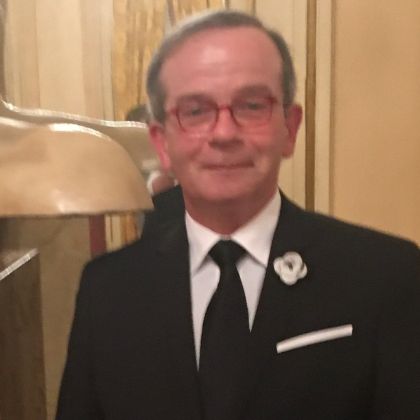Dieter Ammann hoped to politely deflect Andreas Haefliger’s request for a piano concerto by stipulating that he first assemble a group of co-commissioners, including “an important US orchestra”. Undaunted, Haefliger did just that, snagging the Boston Symphony which, under Susanna Mälkki, gave the concerto’s American premiere as part of this week’s program. Subtitled “Gran Toccata”, Ammann’s piece features that Baroque genre’s emphasis on virtuosity, speed, and dexterity of touch, but in a tightly woven fabric of often loud sound which places relentless demands on both orchestra and soloist and buffets the audience with its gale-force episodes.
Though there is no program, a sense of time is immediately evoked by the tick-tock of the piano’s opening series of stabbing, fortissimo As – a motif which returns to close the concerto in the guise of a mesmerizing heartbeat, pillowed by microtonal strings, as the soloist begins to stutter, then falter, then fall silent. In between, chimes, bells, and tolling motifs surface to remind the ear of time passing. Where other composers speak of a piece’s architecture, Ammann speaks of its dramaturgy. The drama in this eclectic concerto could very well be seen as a day in the life of a virtuoso performance. The traditional concerto dialogue between soloists and orchestra yields to a pell-mell series of unpredictable, high energy, percussive, and dramatic encounters between piano and full orchestra and piano and various sections.
A varied array of percussion (with vibraphone and marimba outstanding) provides a wash of warm color to the piano’s icier timbre. Rarely is the piano heard alone or in a more intimate or contemplative mode. Thanks to Haefliger and Mälkki, those episodes, the two cadenzas with their Romantic touches amongst them, provided a welcome and notable respite when the overall onslaught grew harrowing or repetitive. With the stamina, drive, and pacing of two triathletes, orchestra and soloist crested all obstacles and challenges in the concerto’s eventful 30 minutes. Though it might benefit from a nip and tuck here and there, length did not dampen the audience’s enthusiastic response nor its prolonged standing ovation for a startled and appreciative composer. Haefliger and Mälkki will take Ammann’s concerto to Helsinki and Munich in the coming months. Go. Though it might perplex and provoke, this is definitely a composition which will repay your interest.
The second major piece on the program was also a BSO American premiere... in 1907, when Karl Muck led the first performances of Debussy’s La Mer. Since then, Debussy’s “symphonic sketches” have figured in BSO programs over 300 times and on four recordings from 1938 to 1982. Nevertheless, the orchestra responded to Mälkki’s demands, recasting a local warhorse in intriguing fashion. Neither tone nor colors were hyper-saturated. A cooler, sparer sound prevailed with tempi well-paced and spacious. Dynamics and an elastic pulse provided the major contrasts and allowed light to shine on unusual details. Debussy by way of Sibelius, as my seat-mate asked? Perhaps, but definitely an interpretation which nudged familiarity aside and perked up the ears.
Each half began with shorter, quieter works, calms between the two storms to come: a warm, hushed, and elegiac Pavane by Fauré infused with the balm of Elizabeth Rowe’s flute and Messiaen’s bright, celebratory six-minute “Alleluia on the trumpet, Alleluia on the cymbal” from 1934’s L’Ascension to open the second half with its harmonic echoes of La Mer and hints of its composer’s mature style.
Mälkki last led the BSO nine years ago. This week’s inspired and eloquent execution of such a varied and demanding program argues for a much briefer hiatus.


